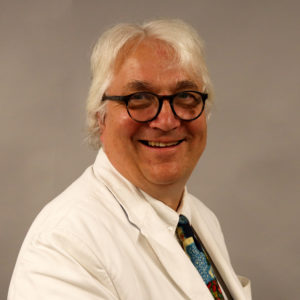 Head of Department – Richard Martin
Head of Department – Richard Martin
Richard Martin has an MA in English from the University of Cambridge and has been working at MPW since 1984.
Role at MPW
Currently, I do a lot of teaching as well as overseeing the English and Theatre Studies Department as its head. I organise regular theatre trips for the students and arrange guest lectures. I’m also one of the interviewers during the Admissions process. The real pleasure of working at MPW down through the years has been talking about literature with small and engaged groups.
Publications and Work
My first teaching experience was actually at Cambridge, where I got to teach the Victorian paper at my college in the year after I graduated. I have also fulfilled the roles of an assistant examiner and then team leader for OCR for about 12 years alongside my roles at MPW.
In the early ’90s, I produced revision guides on Hamlet, King Lear, and on Prose and Poetry for the ‘unseen’ component for BMG records – I’m gratified to be on the same record company as David Bowie and Elvis Presley, though I may not have sold as many units as they have. I also contributed recently to an e-magazine about The Tempest, discussing alchemy. My academic writing has however principally taken the shape of the writing of the in-house course materials I provide for students at all levels.
I write my own poetry and short stories; I’ve recently written my first play (at the tender age of 60) which I would like to see performed. I produce collages and am a devotee of Dada and Conceptual art.
See Richard’s article ‘The Two Tempests in The Tempest’, where he explores alchemy in The Tempest.
Describe MPW
The great thing for me about MPW has always been that we treat students as adults, as reflected in the fact that we call them by their first name. It will always be the case that, because MPW meets with its students relatively late into their academic careers, all tutors at MPW know they are in competition with the teaching experiences that students have had before. That has always created a very interesting challenge for the college’s tutors: how can I make this subject more interesting? How can I go through this text and say something that hasn’t been said before? What can we do that’s different? If they didn’t get it first time round, what can I do to make the teaching of this text better? That challenge, I believe, breeds excellence.
What do you enjoy about teaching English Literature?
It’s exciting to communicate to others one’s love of a subject and wonderful when students have ‘lightbulb moments’ and make the connections you want them to make – or see something that one hasn’t. I like the fact that I can be teaching texts for five years in a row and they keep changing. I’m currently teaching Dracula and as I’m teaching, I’m using my course materials, adding to and amending them. It’s good too that students can see that process – they can see that their teacher is both getting them to think and thinking himself. There’s always another way to look at a text. One’s teaching evolves and one’s thinking about a text evolves, so one’s never teaching the same text twice. Also, if you’re teaching different groups, that throws up different challenges because they offer you perspectives or you find a new perspective from the dialogue with one group or another.
Richard beyond MPW
In terms of my specialisms, I’m very focused on early modern literature, Shakespeare and the other dramatists and poets of that period. I’m very interested in the relationship between text and context and hope that in my teaching the historical, political and psychoanalytical intersect. I’m very interested in the Gothic genre to the extent of writing my own stories in this mode. I’m also interested in experimental writing, so Modernism is well-represented on my bookshelves. My first experience of literature was that it could be dangerous and challenging: I was a very young devotee of the ‘Beats’ so for me literature appeared from the start as transgressive and subversive. This is (it strikes me now) what shaped me as a reader and a teacher. I am also interested in the Occult, Renaissance and Modern art.
My other interest is music, primarily psychedelic and progressive music – from the late ’60s and early ’70s. I have a son who is a professional musician. I am a cat lover. My wife and I are Francophiles. We have a French house, to which we decamp every summer. We strive to live as much of our lives there as we can when I’m not teaching.
Any tips for future MPW students?
It’s imperative that students who join MPW treat their tutors as allies. Students need to feel that teachers are not the enemy – which is the way they may well have felt hitherto. It’s not an ‘us’ and ‘them’ situation. It’s a journey for all of us to get students the qualifications and grades they want. We want what they want and we’re just going to facilitate them getting what represents them at their very best. Trust your tutors and value your time at MPW. Value your time, use your time well and acknowledge your enjoyment. I think sometimes it takes people a quantum shift to say that learning is really enjoyable. The end is to get a qualification, but the process is what really matters.

